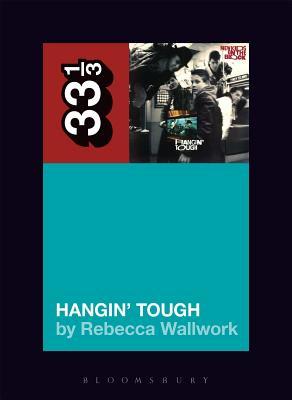New Kids on the Block's Hangin' Tough by Rebecca Wallwork (to be released 4/21/2016)
Odd, perhaps, to see a review from a 45-year-old man for a book such as this, but I'll offer my defense, should it seem necessary: at age 19, during the same year that the New Kids on the Block became famous with Hangin' Tough, I was beginning my journey out of the closet. I was the same age as Jordan Knight, on whom I was seriously crushing. I fell in love with these guys, knowing full well how cheesy their act was, and reveling in the shock people felt when I told them that I, a college-radio DJ into everything from Black Flag to Sonic Youth to Public Enemy to...well, hey, my tastes were quite broad.
Therefore, I figure, given how I wasn't able to explore my relationship stuff back in my early adolescence, there must have been some of that energy still going on for me. I also learned that my very broad taste in music is tied to my complicated personality, but no need to get into that here.
I call it a defense jokingly, of course. I'm not really shamed by it or embarrassed. I wouldn't have stooped to calling myself a "Blockhead," because I've always (perhaps to my detriment) resisted tribalism, especially silliness such as that. I was even a more devoted Iron Maiden fan (kind of still am) but I never wanted to be called an "Iron." Or whatever.
I bring all of this up because the most interesting part of this book is the cognitive science aspect of it, how music can have a dopamine-release effect on us humans, and how emotional things which happen when we are young teens are amplified for various reasons, and hence when we hear the songs we loved at that age we react more strongly than we might as an adult to a new song we hear and like.
We also get a bit of history of the band's development and of Maurice Starr, the band's genius founder and director, plus some quick fan-type reactions to the songs on the album and some discussion of fan/band relational reactions.
I'm not sure we get a proper analysis of the music on the album, but that's okay. It was an enjoyable enough read, if not entirely well-focused. My three-star rating could be 3.5 just because I still have a bit of that fanboy in me, and no, I'm not embarrassed about it.
(With gratitude to the publisher and NetGalley for providing an ARC for this review.)








